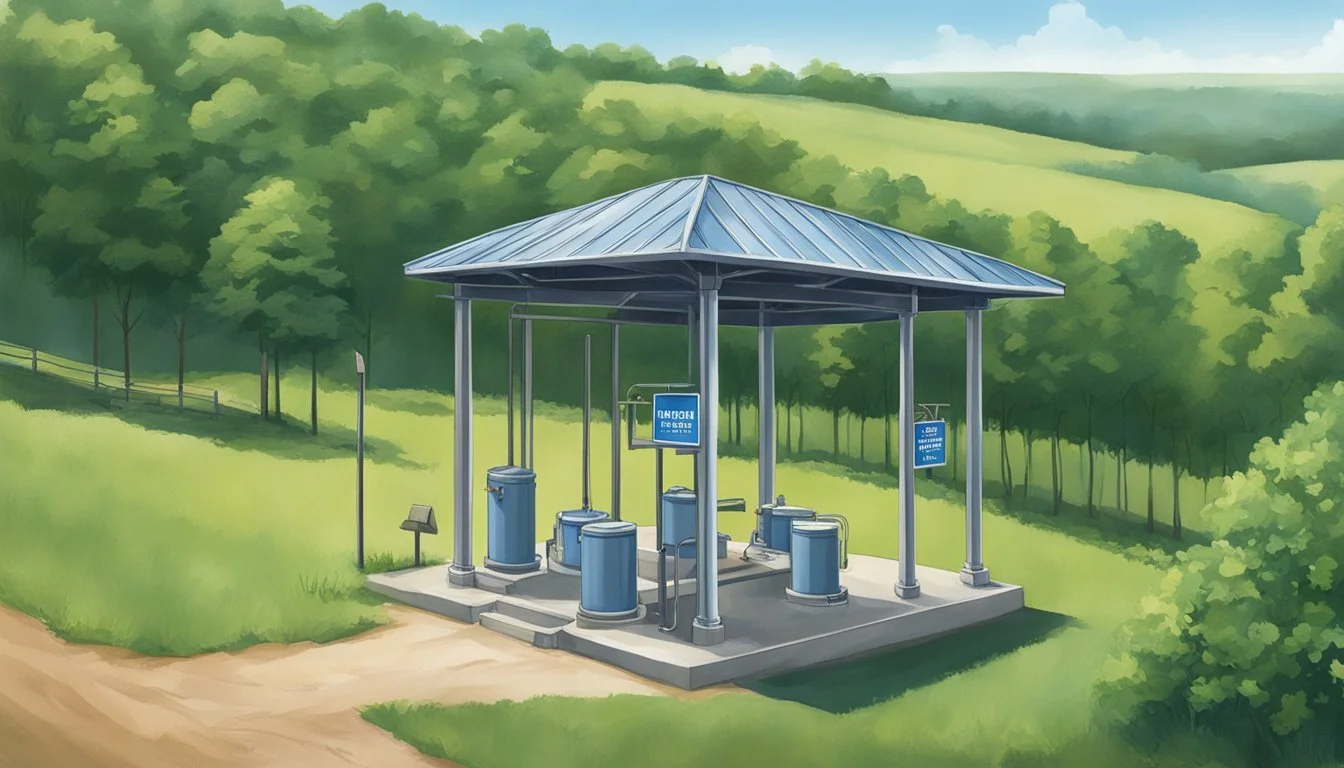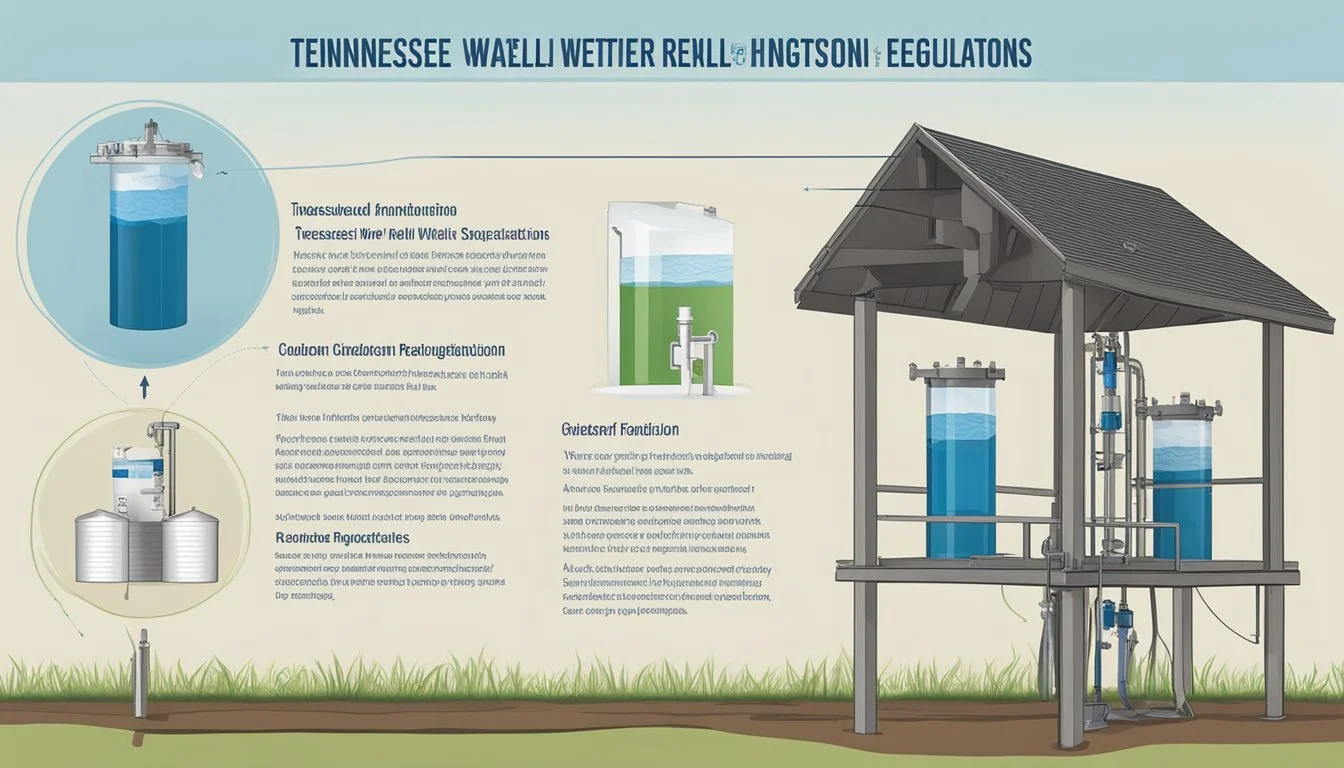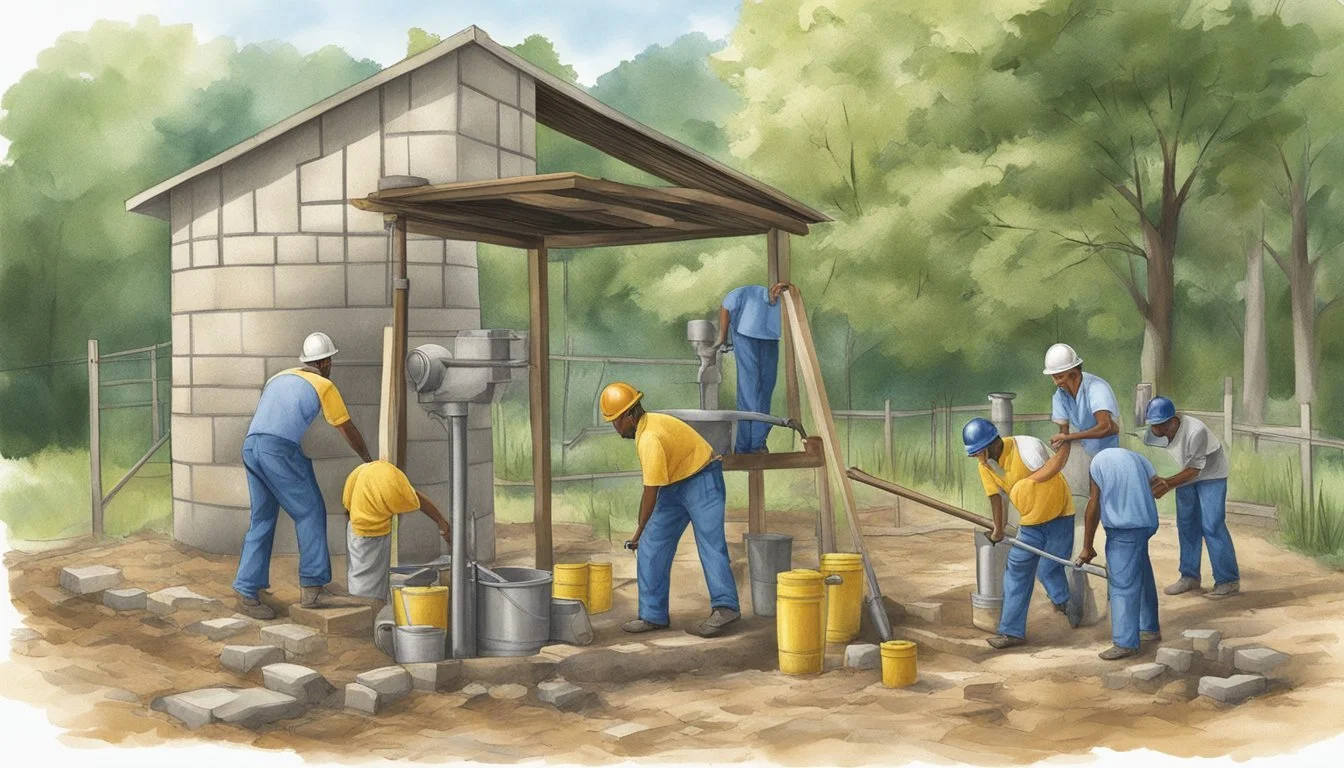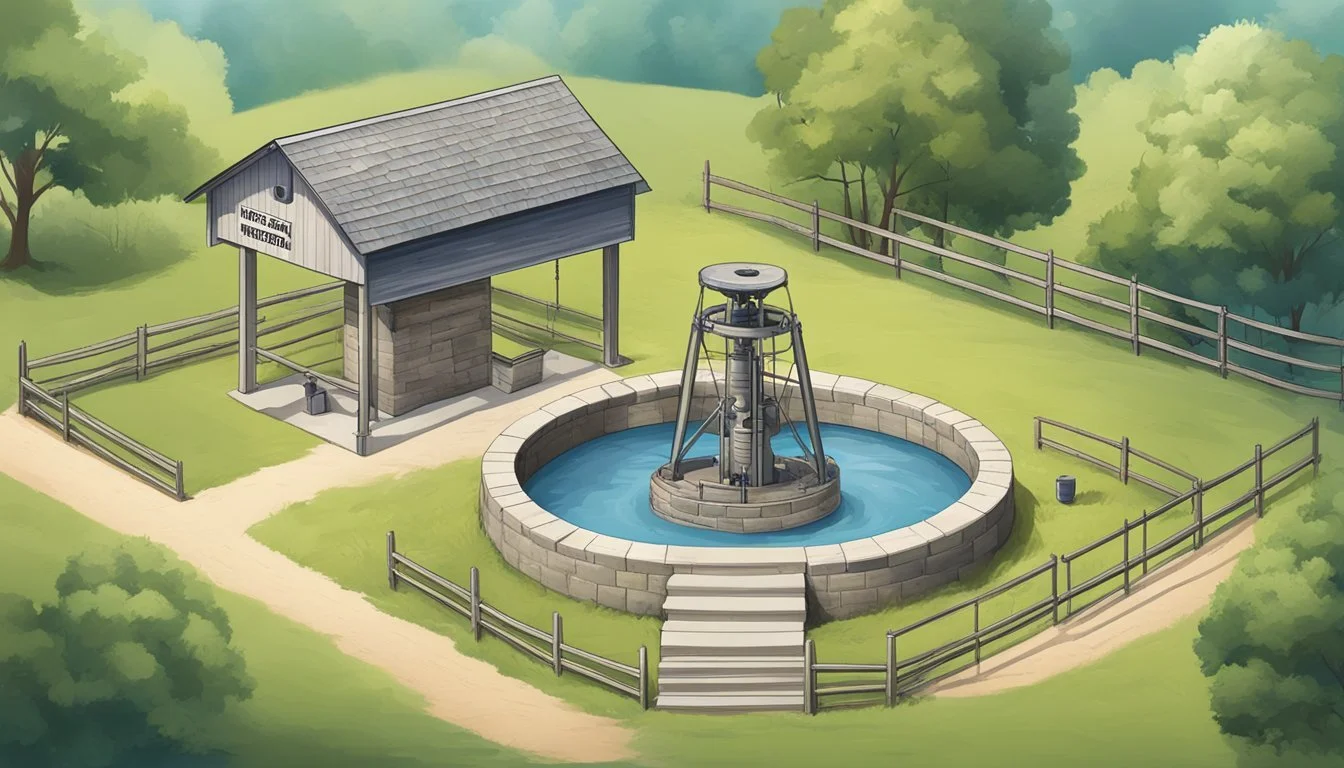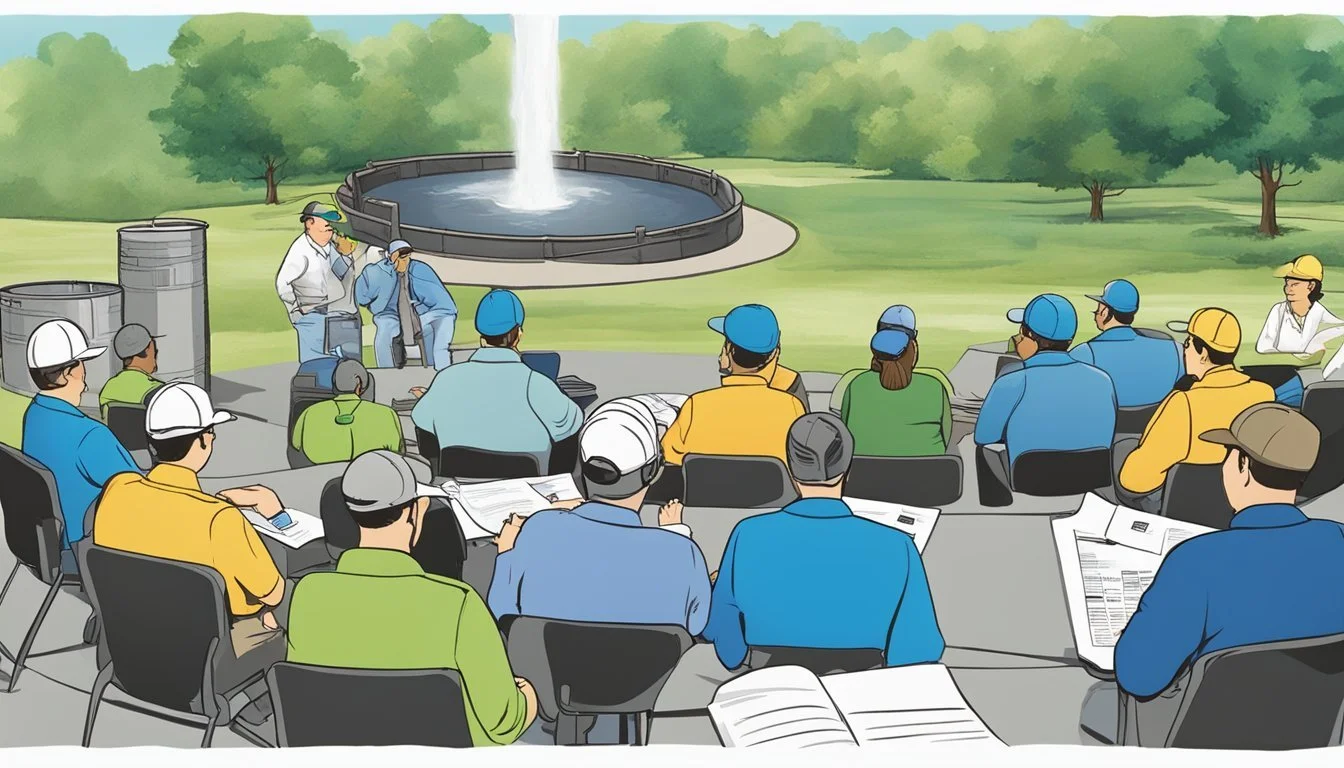Tennessee Water Well Regulations
Understanding Compliance and Safety Standards
Water wells in Tennessee are subject to a set of regulations designed to ensure the safety and reliability of water sources throughout the state. The Tennessee Water Well Act of 1963 established a framework requiring licensure for individuals and companies drilling water wells. This legal mandate aims to safeguard public health by ensuring that wells for various beneficial uses, whether for domestic purposes, irrigation, or livestock watering, meet specific construction and maintenance standards.
The oversight of these regulations falls under the Tennessee Division of Water Resources, which is tasked with implementing the Tennessee Water Well Act. Alongside state-specific regulations, the Safe Drinking Water Act, a federal law that protects public drinking water supplies across the United States, also plays a crucial role in shaping the standards for private water supply systems in Tennessee. These interconnected state and federal guidelines form a comprehensive regulatory environment to maintain water well integrity and ensure that residents have access to clean, potable water.
Moreover, Tennessee's Drinking Water Program reinforces the importance of clean water by implementing regulations that influence both the quality of drinking water and the construction of water wells. It's essential for well drillers and owners to be aware of these regulations to comply with health and safety requirements and to contribute to the state's overall water quality protection efforts.
Tennessee Water Resource Overview
Tennessee's water resources comprise an intricate system of both groundwater and surface water that plays a critical role in the state's environment and its residents' quality of life. These resources are essential for various uses, including domestic purposes, irrigation, and livestock watering.
Groundwater, often accessed through wells, serves as a vital source of water for many Tennesseans. Approximately 10 percent of the population relies on private water supplies, predominantly groundwater wells or springs, which are mainly unregulated. Regulations are in place, under the Tennessee Water Well Act of 1963, mandating that individuals drilling or altering a water well be licensed.
Water Resource Type
Groundwater
Surface Water
Description
Accessed via wells, springs; licensing required for well drilling
Includes rivers, lakes, and reservoirs; vital for ecology and recreation
Water Resource Type Description Groundwater Accessed via wells, springs; licensing required for well drilling Surface Water Includes rivers, lakes, and reservoirs; vital for ecology and recreation
Surface water resources include a vast network of rivers, lakes, and reservoirs. These bodies of water are not only crucial for their ecological value but also for recreational activities. They are regulated by the Tennessee Department of Environment and Conservation to maintain water quality and environmental health standards.
In summary, Tennessee's water regulations ensure the prudent use and management of the state's water resources. The division responsible for overseeing these issues is further detailed in the rules and regulations issued under the authority of the Tennessee Safe Drinking Water Act of 1983. The regulations enforce standards to safeguard public health and preserve the water quality for all beneficial uses.
Regulatory Framework
Tennessee's approach to managing its water resources is characterized by a comprehensive regulatory framework devised to safeguard water quality and public health. This framework is implemented through various programs and oversight administered by the Tennessee Department of Environment and Conservation (TDEC).
Division of Water Resources
The Division of Water Resources is the primary entity within TDEC responsible for enforcing water regulation in Tennessee. They oversee the implementation of both state-level water legislation and federal water standards, ensuring the integrity and conservation of Tennessee's water bodies. Their responsibilities involve issuing permits, supervising water quality, and conducting inspections.
Drinking Water Program
TDEC’s Drinking Water Program ensures that public water systems comply with the Safe Drinking Water Act. This includes the regulation of water quality standards and the oversight of water treatment and distribution. The program has a pivotal role in protecting the health of Tennessee residents by ensuring that drinking water is safe, clean, and reliable.
Underground Injection Control
The Underground Injection Control (UIC) program is a critical component of Tennessee's environmental protection efforts. It regulates the subsurface injection of fluids through well systems, a process that must meet specific construction, monitoring, and testing requirements to prevent contamination of drinking water sources.
Safe Dams Act
Under the Safe Dams Act, Tennessee enforces regulations concerning the construction and maintenance of non-federal dams. The act mandates regular inspections and the implementation of safety standards to mitigate the risk of dam failures, thereby protecting communities and ensuring the structural integrity of water impoundment structures.
In these various capacities, TDEC enforces comprehensive rules and regulations aimed at conserving water resources, promoting public health, and ensuring the long-term sustainability of Tennessee's environment.
Licensing Requirements
In Tennessee, stringent licensing requirements ensure that water wells are drilled and maintained responsibly. These criteria protect groundwater resources and public health through professional oversight.
Licensed Driller Criteria
To become a Licensed Driller in Tennessee, one must adhere to several criteria. They have to pass both a general exam and a specialty portion with at least a 70 percent score. Following successful exam completion, candidates are interviewed by the Board of Groundwater Management.
Applications: Prospective drillers submit formal applications demonstrating their qualifications.
Fees: Applicants are required to pay fees associated with the licensure process.
Responsibilities: Holding a license commits a driller to uphold the state's construction standards for water well drilling.
Licensed drillers must ensure compliance with all the applicable regulations, including obtaining necessary permits before conducting drilling operations. Licenses must be renewed annually to continue practicing.
Water Well Licensing Regulations
Water Well Licensing Regulations stipulate the standards for water well construction to ensure safe and sustainable extraction of groundwater.
License: It is mandatory for anyone drilling a water well to be licensed under the Tennessee Water Well Act of 1963.
Renewal: Licenses expire on July 31 each year, and drillers must renew their licenses to maintain their eligibility to work.
Appeal: In case of any disputes or issues with licensing, there is a process in place for appealing decisions made by regulatory bodies.
Compliance is monitored through various enforcement measures and routine checks, requiring drillers to maintain a high standard of skill and knowledge in their field.
Water Well Construction
In Tennessee, rigorous well construction standards ensure the integrity and safety of water wells. These regulations govern all aspects from drilling to casing installation.
Well Construction Standards
The state of Tennessee has set forth detailed well construction standards that specify the requirements for constructing, reconstructing, and repairing water wells. Every well must have a proper casing to prevent the contamination of water supplies and to maintain the stability of the well.
Casing Requirements: A durable casing is required to support the sides of the well and prevent contaminants from entering the water supply.
Grout: To seal the space between the casing and the borehole, grout must be used to establish a sanitary seal.
Cap: Each well must be capped with a watertight and vermin proof well cap to prevent unauthorized access and contamination.
Drilling Procedures
Drilling a water well in Tennessee involves a series of steps that are closely regulated to ensure safety and efficiency:
Site Selection: Drilling must not commence until a suitable site is chosen based on environmental and geological assessments.
Drilling Equipment: Only licensed professionals are permitted to operate the necessary drilling equipment, and they must adhere to strict operational guidelines.
Installation of the Well Casing: During the drilling process, the well casing must be inserted to prevent the collapse of the well walls and to isolate groundwater zones.
The regulations stress that only licensed individuals can perform these tasks to guarantee that all processes are adhered to according to the official well construction standards.
Water Quality Management
In managing water quality, Tennessee regulations emphasize stringent measures to prevent contamination of water wells and detail specific disinfection procedures to ensure safe water for its users.
Contamination Prevention
Preventing contamination is a foundational aspect of water quality management. The Tennessee Water Well Act mandates that all water well drillers must be licensed, creating a layer of accountability intended to ensure wells are constructed without introducing contaminants. Additionally, there is a strong focus on preventing bacterial contamination from common pollutants like solvents, bacteria, lead, and pesticides. Safe practices are enforced to mitigate any infiltration of such substances into the water supply.
Disinfection Procedures
Once a well is constructed, disinfection is a critical procedure for maintaining water quality. The state advocates the use of specific disinfection chemicals to address any microbial contamination. A chlorine solution is often recommended for its effectiveness against a broad spectrum of pathogens. Disinfection guidelines dictate proper dosages and contact times to ensure the elimination of harmful microbes without compromising the water's quality.
Well Maintenance and Safety
Maintaining water wells in Tennessee is essential to ensure the safety and quality of drinking water supplies. This involves routine testing and knowing the proper flood response to protect water wells from contamination.
Routine Testing
He or she should test well water regularly to maintain its quality and safety. At a minimum, annual testing for coliform bacteria is recommended to ensure that drinking water supply remains safe. Besides bacteriological contamination, testing the levels of nitrates, pH, and other contaminants as advised by local guidelines is essential. A licensed professional can be employed to conduct these tests to determine if the water from water supply wells meets the health standards set by state regulations.
If a test reveals that the well water is contaminated, prompt disinfection is necessary. This can include treatments like shock chlorination, where a strong chlorine solution is flushed through the well and plumbing system, including faucets.
Flood Response
Flooding can significantly affect well water by introducing pollutants and pathogens, putting the water supply at risk. If a well or the surrounding area has been flooded, one should assume that the well water has been compromised. After floodwaters recede, it's crucial to refrain from using the water for consumptive purposes until it has been tested and confirmed safe.
The immediate steps following flooding should include:
Thorough inspection of the well for any physical damage to the pump, casing, or wiring system.
Disinfecting the well and plumbing systems with a chlorine solution to ensure any residue from floodwaters is eradicated.
Extended periods of high water levels may alter the quantity of water a well yields. In such cases, it's important for the pump to be checked and serviced by a licensed individual to ensure it operates efficiently and safely.
Protecting Private Water Supplies
The health and safety of private water supplies depend on meticulous management and understanding of potential risks. This scrutiny is crucial to safeguard against contaminants that can pose health hazards to consumers.
Potential Sources of Contamination
Private water supplies such as wells can be exposed to a plethora of contamination sources. Sewage lagoons, which are basins for sewage treatment, can be a risk if not properly lined and maintained to prevent leakage. Similarly, leaching pits, which handle septic tank overflow, can contaminate groundwater if overused or improperly constructed. The vicinity of animal pens and feed lots to private water supplies demands attention due to the potential run-off of waste, which can lead to high concentrations of nitrates and pathogens in the water supply.
Another critical concern is sludge from wastewater treatment processes, which can contain heavy metals and should be safely disposed of far from water supplies. Pit privies, a type of latrine, should be located at a safe distance and downhill from water sources to prevent any seepage. Sewer lines and septic tanks should be routinely inspected to ensure they are intact and leak-free, as deterioration can lead to groundwater contamination.
Proper Waste Disposal
Proper waste disposal is paramount for the protection of private water supplies. The placement and design of septic tanks and associated drain fields need to be thoughtfully considered; they should be placed outside of potential flood areas to avoid over-saturation and subsequent contamination of water supplies. The use of a tightline, a sealed pipe system, is recommended to transport waste with minimal risk of leakage.
Regular maintenance checks for these waste systems are essential. Homeowners must ensure that proper distances are maintained between their private wells and other potential contamination sources, adhering strictly to the Tennessee Healthy Well Manual guidelines. It is also important to follow the state's well construction standards, as they include specifications that help in preventing contamination threats from various sources and keep the water supply secure.
Legal and Compliance Measures
In Tennessee, water well regulations are detailed and require strict adherence to ensure the safety of public water systems. Both legal responsibilities and compliance monitoring are critical in managing the state's water resources effectively.
Legal Responsibilities
The legal responsibilities for water wells in Tennessee are specified under the Tennessee Water Well Act of 1963. It mandates that all individuals drilling a water well must have a license. This encompasses wells used for various applications, including domestic use, irrigation, and livestock watering. The Act extends to those installing pumps or water treatment devices, who are similarly obligated to be licensed.
Specific regulations control different aspects of water well construction and maintenance. For instance, a watertight casing must be used to prevent contamination, and appropriate backfill is necessary to protect the water supply. House to septic tank connections are also regulated, ensuring no cross-contamination of potable water with waste.
Compliance Monitoring
Compliance with these regulations is overseen by the Division of Water Supply. This entity ensures that well construction standards are met and that public water systems operate within the legal requirements. The division actively updates and enforces rules that govern water quality and quantity, including the monitoring of backfill and the integrity of watertight casings.
Contact information for the Division of Water Supply is made available to the public, enabling individuals or entities to seek clarification on regulations, ascertain licensing details, or report any concerns regarding water well safety and compliance. This transparency supports a collaborative approach to maintaining water system integrity within the state.
Industry Resources and Associations
In Tennessee, those in the water well industry, including drillers and other professionals, have access to several associations that provide resources, regulatory guidance, and networking opportunities. These associations advocate for best practices in the construction and maintenance of water wells.
Tennessee Water Well Association
The Tennessee Water Well Association (TWWA) is a pivotal entity for well drillers and others involved in the well water industry in Tennessee. Founded in 1951, the TWWA is a non-profit organization that endeavors to promote proper use and protection of groundwater resources. The association provides its members with ongoing education, including the business and legal aspects of well drilling and maintenance. Moreover, the TWWA hosts an annual meeting and trade show, offering a venue for industry professionals to convene and discuss advancements and challenges within the industry.
National Groundwater Association
A broader community is represented by the National Groundwater Association (NGWA), which serves as a resource at the national level for water well contractors, scientists, and engineers involved with groundwater. NGWA advocates for sustainable groundwater management and provides educational resources, including industry-specific publications and certifications. Additionally, they organize events like the South Atlantic Well Drillers Jubilee, which is a significant occasion for those in the groundwater industry to network, learn about innovations, and stay abreast of regulatory changes.
Both the TWWA and NGWA offer indispensable support to ensure that water wells in Tennessee and across the country are developed and maintained to the highest standards for the benefit of all stakeholders.
Frequently Asked Questions
In this section, readers will find information addressing common inquiries related to water well regulations in Tennessee.
What are the setback requirements for water wells from property lines in Tennessee?
The Tennessee Water Well Act of 1963 stipulates that water well drilling must adhere to certain setback requirements from property lines, but these can vary by locality. It is advised to consult with local regulations for specific measurements.
What official resources are available for water well regulations in Tennessee?
Residents can access official rules and guidelines on water well construction standards and licensing through documents provided by the state government.
Is there a state-maintained water well database for Tennessee residents to access?
Yes, drillers are required to submit details to the Division of Water Resources and this information may be accessible through a formal request.
How is water well construction regulated in Tennessee?
Drillers must be licensed under the Tennessee Water Well Act, and they must adhere to strict well construction standards to ensure the safety and quality of water wells.
What is the average cost for constructing a water well in Tennessee?
The cost can vary widely based on depth, ground conditions, and well specifications. Estimations usually require specific site assessments by licensed well drillers.
What role does the Tennessee Water Well Association play in well regulations?
The association works to support the industry and ensure that members follow the best practices and regulations in place for water well drilling in Tennessee.

